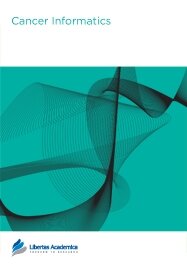

Publication Date: 14 Dec 2014
Type: Review
Journal: Cancer Informatics
Citation: Cancer Informatics 2014:Suppl. 7 35-43
doi: 10.4137/CIN.S16343

Numerous statistical methods have been published for designing and analyzing microarray projects. Traditional genome-wide microarray platforms (such as Affymetrix, Illumina, and DASL) measure the expression level of tens of thousands genes. Since the sets of genes included in these array chips are selected by the manufacturers, the number of genes associated with a specific disease outcome is limited and a large portion of the genes are not associated. nCounter is a new technology by NanoString to measure the expression of a selected number (up to 800) of genes. The list of genes for nCounter chips can be selected by customers. Due to the limited number of genes and the price increase in the number of selected genes, the genes for nCounter chips are carefully selected among those discovered from previous studies, usually using traditional high-throughput platforms, and only a small number of definitely unassociated genes, called control genes, are included to standardize the overall expression level across different chips. Furthermore, nCounter chips measure the expression level of each gene using a counting observation while the traditional high-throughput platforms produce continuous observations. Due to these differences, some statistical methods developed for the design and analysis of high-throughput projects may need modification or may be inappropriate for nCounter projects. In this paper, we discuss statistical methods that can be used for designing and analyzing nCounter projects.
PDF (651.90 KB PDF FORMAT)
RIS citation (ENDNOTE, REFERENCE MANAGER, PROCITE, REFWORKS)
Supplementary Files 1 (230.79 KB PDF FORMAT)
BibTex citation (BIBDESK, LATEX)
XML
PMC HTML


Compared with other journals we considered for publishing, Cancer Informatics provided extremely rapid but quality turnaround from draft submission to a flawlessly typeset final publication. Moreover, sharing the article is now as easy as sharing a link with no subscriptions required, and additional code and data files are equally accessible, supporting reproducible research. Because it has published many of our references we feel confident that our target readership must follow the journal. This is further ...
Facebook Google+ Twitter
Pinterest Tumblr YouTube